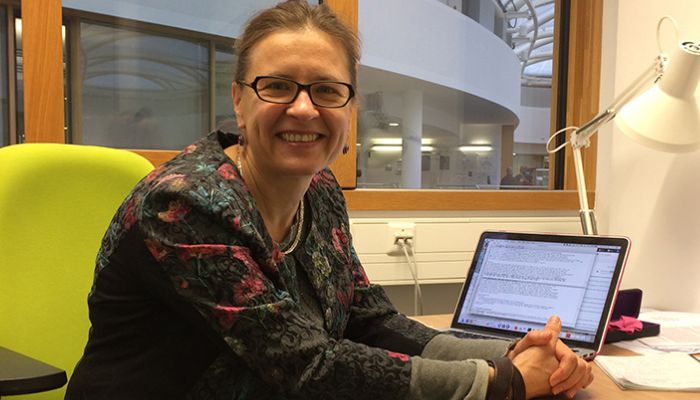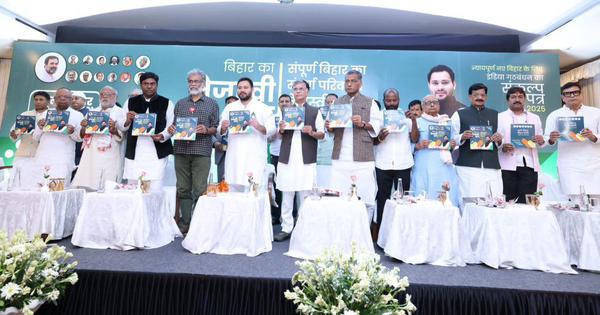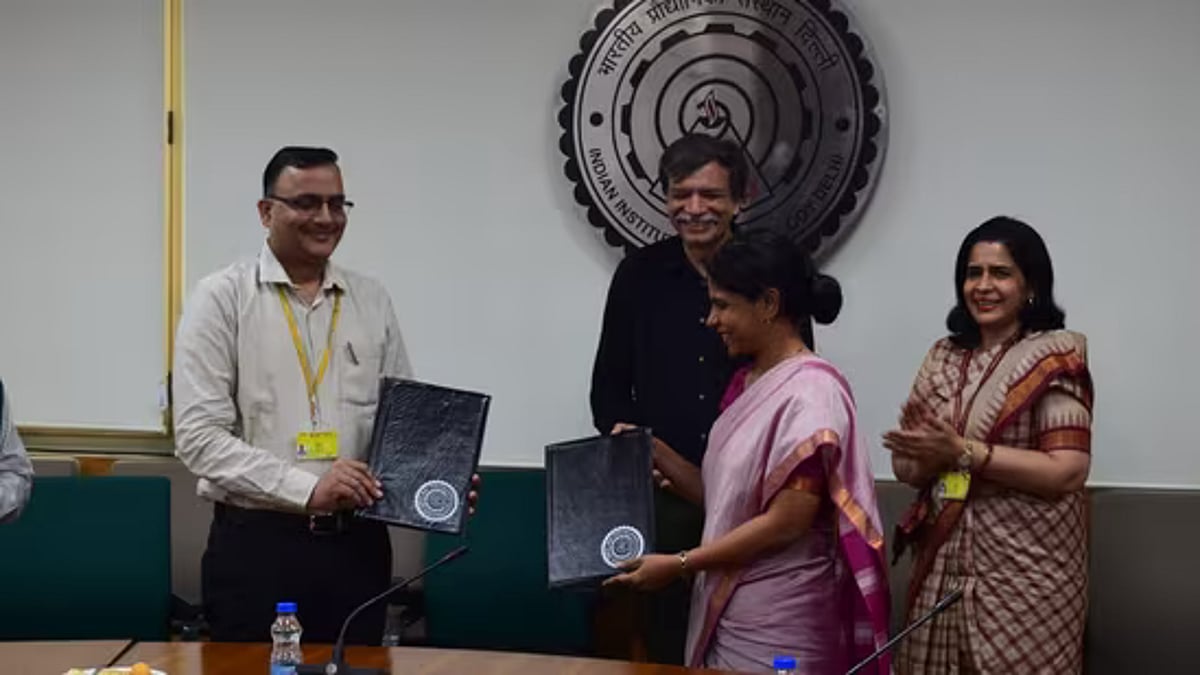Professor accuses Nature Publishing Group of bias and identity politics: How the Left’s social justice agenda is force-fitting DEI into STEM publishing
On 24th October, Professor Anna I Krylov, a Chemist and USC Associates Chair in Natural Sciences, wrote a striking open letter that has reignited the debate on political interference in science. In the letter, Professor Krylov declared that she will no longer engage with the Nature Publishing Group. Her decision came with a clear accusation that the publishing house has “abandoned its mission in favour of advancing a social justice agenda.” In simple terms, Krylov and other scientists are warning that journals like Nature are giving more weight to who a researcher is, rather than what they discover. When science becomes a battleground for ideology The open letter titled “Why I No Longer Engage with Nature Publishing Group”, published on Substack, read like both an act of protest and a warning. She recounted declining an invitation to review a paper for Nature Communications because the group has “institutionalised censorship,” “sacrificed merit in favour of identity-based criteria,” and injected “social engineering into its author guidelines.” Professor Krylov highlighted examples that reflected this drift. The Springer Nature Diversity Commitment (2019) openly instructs editors to prioritise demographic diversity and asks them to “intentionally and proactively reach out to women researchers.” In Nature Reviews Psychology, the introduction of “citation justice” urges authors to reference underrepresented scholars, not necessarily the most relevant or rigorous studies. Furthermore, Nature Human Behaviour’s 2022 policy paper declared that research deemed “harmful” to certain social groups could be censored, which is one of the most controversial cases she cited in the letter. While quoting scholars like Jerry Coyne and Emma Shaw, Krylov warned that such trends amount to “turning science into social engineering,” where bibliographies and editorial decisions are shaped not by intellectual merit but by ideological arithmetic. She questioned if the invite sent to her to peer review the paper was because of her qualifications or because of her “reproductive organs”. She wrote, “I cannot stop but wonder, was I asked to review the manuscript because of my expertise in the subject matter or because of my reproductive organs?” A wider problem – when activism overtakes expertise This ideological creep is not limited to scientific publishing. The diversity, equality and inclusion, better known as DEI, has been injected across institutions from academia to corporate boardrooms. The DEI movement has become a quasi-religious dogma. In the field of entertainment, “representation metrics” now often override creative choices. Furthermore, in corporate sectors, companies like Boeing and, in India, Godrej, have faced scrutiny. In fact, in the case of Boeing, it has been argued that the cultural shift towards diversity goals has severely impacted the company’s engineering excellence and accountability. The pattern has been consistent all over. The Left’s moral vocabulary of “inclusion” and “justice” is being recast as a managerial and intellectual framework. When such ideological dogma is applied to fields like STEM, where empirical truth must stand independent of ideology, it becomes dangerous. As Krylov noted, “The purpose of science is the pursuit of truth, not the advancement of diversity, equity, and inclusion.” Why politics must not contaminate science When it comes to scientific publishing, what pushes it towards becoming a better source of information is the fact that it thrives on scepticism, which cannot be replaced with solidarity. It is meant to question authority, not follow ideological trends. Yet in recent years, parts of academia have treated politics as an inseparable companion to knowledge production. As a result, instead of pushing diversity in thought processes, it has enforced conformity. There is immense pressure on scholars to signal allegiance to “the right causes”, no matter if it hampers the very base of science, that is ‘facts’. It is impossible for science to coexist with political fear. If editors censor findings, or if reviewers are selected by identity rather than expertise, research becomes activism by another name. Whether the bias is of exclusion or forced inclusion, the distortion is the same and truth becomes secondary. By severing ties with Nature, Professor Krylov has brought a much-needed question back into focus. Can science remain neutral in an age where neutrality itself is seen as political? Her stand is not merely about one journal, but about the future of truth-seeking itself. “Should Nature recommit to scientific excellence,” she wrote, “I will be happy to revisit my decision. In the meantime, I will encourage my fellow scientists to stand up for the integrity of science.” In a world where activism increasingly masquerades as objectivity, her words serve as both a challenge and a reminder that the pursuit of truth must never bow to the po



On 24th October, Professor Anna I Krylov, a Chemist and USC Associates Chair in Natural Sciences, wrote a striking open letter that has reignited the debate on political interference in science. In the letter, Professor Krylov declared that she will no longer engage with the Nature Publishing Group. Her decision came with a clear accusation that the publishing house has “abandoned its mission in favour of advancing a social justice agenda.”
In simple terms, Krylov and other scientists are warning that journals like Nature are giving more weight to who a researcher is, rather than what they discover.
When science becomes a battleground for ideology
The open letter titled “Why I No Longer Engage with Nature Publishing Group”, published on Substack, read like both an act of protest and a warning. She recounted declining an invitation to review a paper for Nature Communications because the group has “institutionalised censorship,” “sacrificed merit in favour of identity-based criteria,” and injected “social engineering into its author guidelines.”
Professor Krylov highlighted examples that reflected this drift. The Springer Nature Diversity Commitment (2019) openly instructs editors to prioritise demographic diversity and asks them to “intentionally and proactively reach out to women researchers.” In Nature Reviews Psychology, the introduction of “citation justice” urges authors to reference underrepresented scholars, not necessarily the most relevant or rigorous studies. Furthermore, Nature Human Behaviour’s 2022 policy paper declared that research deemed “harmful” to certain social groups could be censored, which is one of the most controversial cases she cited in the letter.
While quoting scholars like Jerry Coyne and Emma Shaw, Krylov warned that such trends amount to “turning science into social engineering,” where bibliographies and editorial decisions are shaped not by intellectual merit but by ideological arithmetic. She questioned if the invite sent to her to peer review the paper was because of her qualifications or because of her “reproductive organs”.
She wrote, “I cannot stop but wonder, was I asked to review the manuscript because of my expertise in the subject matter or because of my reproductive organs?”
A wider problem – when activism overtakes expertise
This ideological creep is not limited to scientific publishing. The diversity, equality and inclusion, better known as DEI, has been injected across institutions from academia to corporate boardrooms. The DEI movement has become a quasi-religious dogma. In the field of entertainment, “representation metrics” now often override creative choices. Furthermore, in corporate sectors, companies like Boeing and, in India, Godrej, have faced scrutiny. In fact, in the case of Boeing, it has been argued that the cultural shift towards diversity goals has severely impacted the company’s engineering excellence and accountability.
The pattern has been consistent all over. The Left’s moral vocabulary of “inclusion” and “justice” is being recast as a managerial and intellectual framework. When such ideological dogma is applied to fields like STEM, where empirical truth must stand independent of ideology, it becomes dangerous. As Krylov noted, “The purpose of science is the pursuit of truth, not the advancement of diversity, equity, and inclusion.”
Why politics must not contaminate science
When it comes to scientific publishing, what pushes it towards becoming a better source of information is the fact that it thrives on scepticism, which cannot be replaced with solidarity. It is meant to question authority, not follow ideological trends. Yet in recent years, parts of academia have treated politics as an inseparable companion to knowledge production.
As a result, instead of pushing diversity in thought processes, it has enforced conformity. There is immense pressure on scholars to signal allegiance to “the right causes”, no matter if it hampers the very base of science, that is ‘facts’.
It is impossible for science to coexist with political fear. If editors censor findings, or if reviewers are selected by identity rather than expertise, research becomes activism by another name. Whether the bias is of exclusion or forced inclusion, the distortion is the same and truth becomes secondary.
By severing ties with Nature, Professor Krylov has brought a much-needed question back into focus. Can science remain neutral in an age where neutrality itself is seen as political? Her stand is not merely about one journal, but about the future of truth-seeking itself. “Should Nature recommit to scientific excellence,” she wrote, “I will be happy to revisit my decision. In the meantime, I will encourage my fellow scientists to stand up for the integrity of science.”
In a world where activism increasingly masquerades as objectivity, her words serve as both a challenge and a reminder that the pursuit of truth must never bow to the politics of virtue signalling.
Who is Professor Anna I Krylov?
Professor Anna I Krylov is the USC Associates Chair in Natural Sciences and Professor of Chemistry at the University of Southern California (USC), specialising in physical and theoretical chemistry. A graduate of Moscow State University (MSc, 1990) and The Hebrew University of Jerusalem (PhD, 1996), she completed her postdoctoral research at the University of California, Berkeley.
Krylov’s research group develops advanced theoretical methods and computational tools to study excited electronic states, spectroscopy, quantum information, and solar energy applications. Over her distinguished career, she has received numerous honours, including the Dirac Medal, Sloan Research Fellowship, ACS Award in Theoretical Chemistry, and fellowships from both the American Physical Society and the American Association for the Advancement of Science (AAAS).































































































